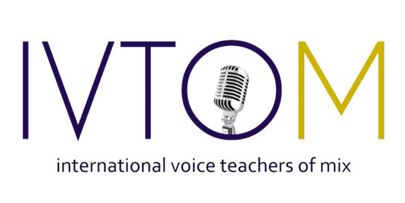Working With Beginners
Weekly Teaching Tip – April 1, 2013
Aren’t we always hoping that the next student walking through the door is the next Jennifer Hudson? That would make our job so easy, just a few tweaks here or there, and voila. Done deal. But quite honestly, I get the most pleasure out of guiding a complete beginner through the process of discovering his/her voice. And by “beginner” I don’t mean someone who’s not been familiarized with singing in the mix, but someone who either thinks he/she can’t sing (or has been told so by others), is not naturally talented, lacks rhythm, and has poor pitch matching ability. *That* is the kind of student that makes me tick. The one I learn most from. The one that really puts my teaching abilities to the test.
If you want to build a trusting relationship with your beginner student, he/she needs to feel a sense of accomplishment, that is, being able to carry a tune on pitch. That should be your first priority. Whether it’s sung with correct technique top to bottom or not, is irrelevant at first. I use a technique I like to call “resonance mapping” to help them distinguish the different resonance spaces for their voices. We “map” out a (simple) song in terms of resonances to get their pitches into the ball park of the melody, then fine tune from there. And by “simple” songs I mean REALLY simple. Like Colbie Calliat’s “Bubbly”. It has a simple rhythm and a 5-tone range. Within 2-3 lessons the student can carry the tune, and sing it to the karaoke track with a bit of reverb on the mic, and feel like a million bucks.
Then you can introduce the concept of bridges and bigger resonance shifts, and apply it to a tune that has a slightly wider range than the first tune. Still keeping it easy, though. Slowly but certainly, you start introducing technique, masking it as “don’t you sound better when you do it *this* way” every time you make a technical suggestion while the student is singing a tune. Once the student is fairly consistent with matching pitches, it’s time to introduce scales and work on strengthening the mix and all the usual stuff. Mind you, it can take several before you reach that point.
The hard part for us teachers is that it can get boring. Because, let’s face it, it’s so much more fun to be teaching a really talented student. And we start doubting whether the student will ever be able to sing decently. But you know what? I’ve had so many of these “not talented” students who have turned around so amazingly after months and months, sometimes even years, that I choose not to give up on anyone, and give them my absolute best effort. And at the end of the day, I get a lot more pleasure from hearing stories about those kind of students becoming local Karaoke hosts, or mustering the courage to audition for a musical and get a part in the chorus, or teaching songs to seniors, than I do from getting the super talented student signed to a label.
It’s so easy to get caught up in everything we know about the voice, and to try to impart as much as we can to the student in every lesson. But in my experience, we can easily overwhelm the student. A complete beginner probably worked on his/her courage to call you and schedule that first lesson for *weeks*. He/she wants to learn how to sing, period. Not sing *better*, yet. Honor that.

